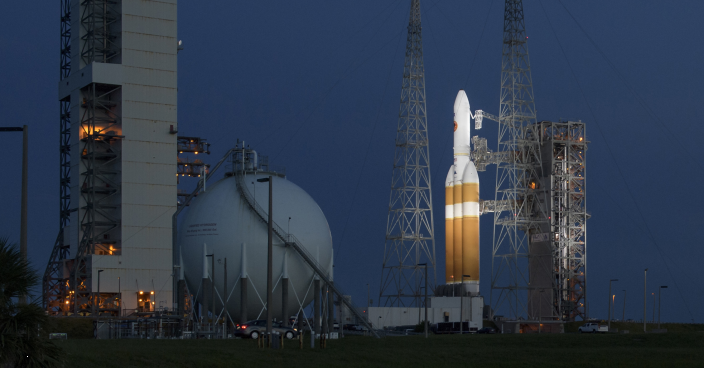A last-minute technical problem has delayed NASA's unprecedented flight to the sun.
Saturday's launch countdown was halted with just one-minute, 55 seconds remaining, keeping the Delta IV (four) rocket at Cape Canaveral, Florida, with the Parker Solar Probe. This followed earlier trouble in the countdown.
NASA says it will try again Sunday.
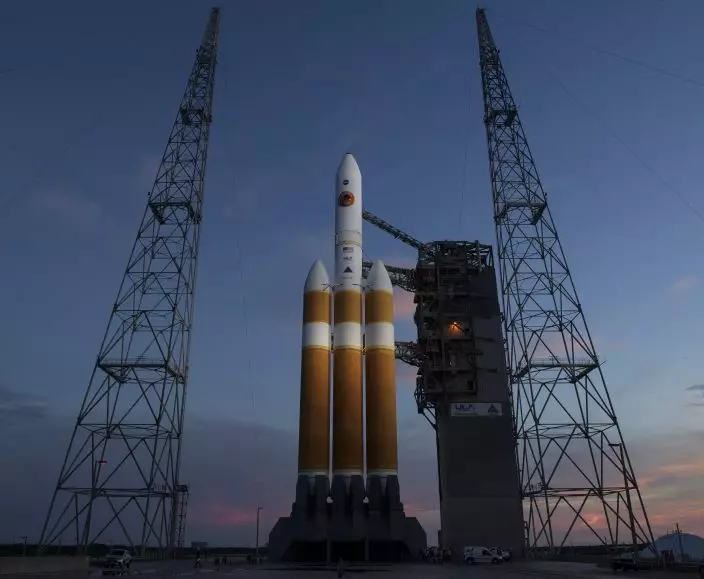
This photo provided by NASA shows the United Launch Alliance Delta IV Heavy rocket with the Parker Solar Probe onboard shortly after the Mobile Service Tower was rolled back, Friday, Aug. 10, 2018, Launch Complex 37 at Cape Canaveral Air Force Station in Cape Canaveral, Fla. NASA is sending a spacecraft straight into the sun's glittering crown, an atmospheric region so hot and harsh any normal visitor would wither. (Bill IngallsNASA via AP)
Once on its way, the Parker probe will venture closer to our star than any other spacecraft. The $1.5 million mission is already a week late because of rocket issues.
Thousands of spectators gathered in the middle of the night to witness the launch, including the University of Chicago astrophysicist for whom the spacecraft is named. Eugene Parker predicted the existence of solar wind 60 years ago. He's now 91 and eager to see the solar probe soar.
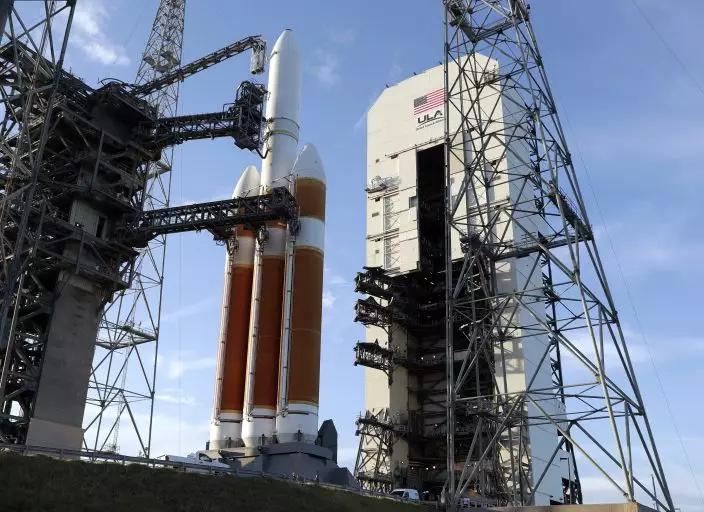
A Delta IV rocket stands ready for launch at complex 37 at the Kennedy Space Center, Friday, Aug. 10, 2018, in Cape Canaveral, Fla. The Parker Solar Probe, scheduled for lift off early Saturday morning, is protected by a first-of-its-kind heat shield and other innovative technologies that will provide unprecedented information about our Sun. (AP PhotoJohn Raoux)
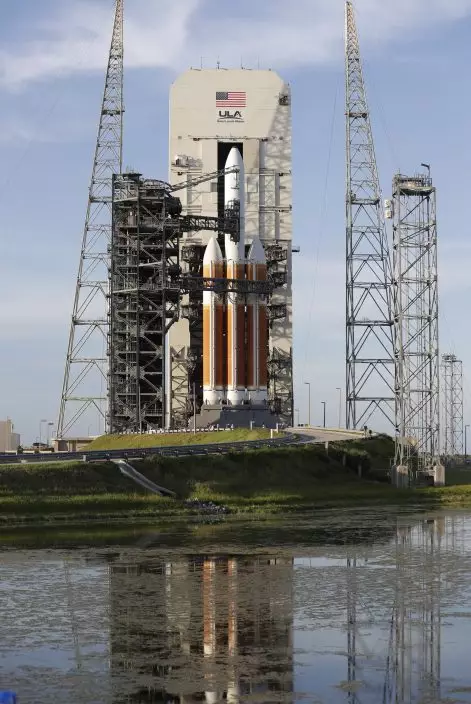
The tower structure for a Delta IV rocket rolls back for launch at complex 37 at the Kennedy Space Center, Friday, Aug. 10, 2018, in Cape Canaveral, Fla. The Parker Solar Probe, scheduled for lift off early Saturday morning, is protected by a first-of-its-kind heat shield and other innovative technologies that will provide unprecedented information about our Sun. (AP PhotoJohn Raoux)
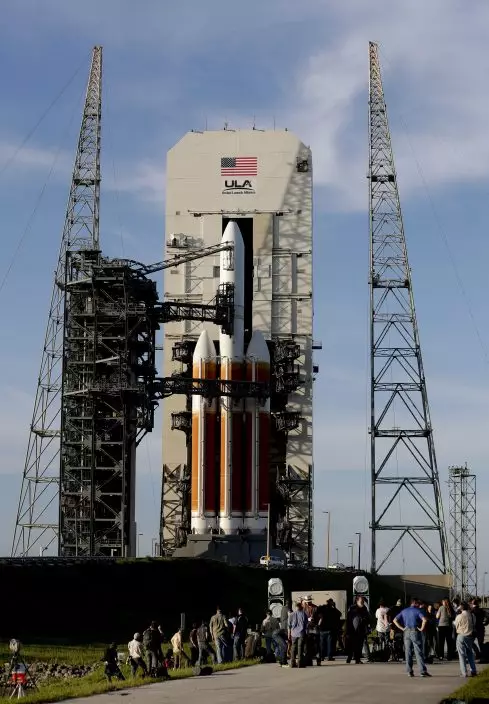
The tower structure for a Delta IV rocket rolls back for launch at complex 37 at the Kennedy Space Center, Friday, Aug. 10, 2018, in Cape Canaveral, Fla. The Parker Solar Probe, scheduled for lift off early Saturday morning, is protected by a first-of-its-kind heat shield and other innovative technologies that will provide unprecedented information about our Sun. (AP PhotoJohn Raoux)


